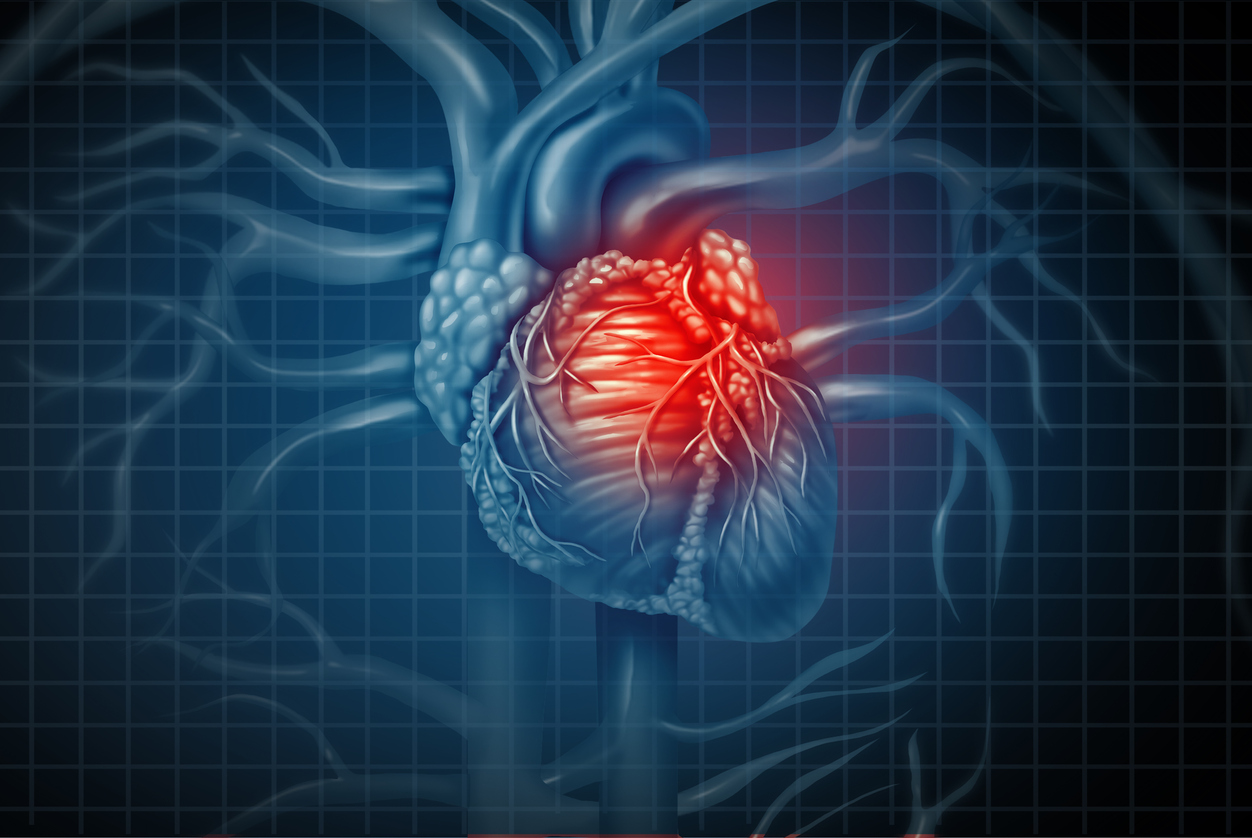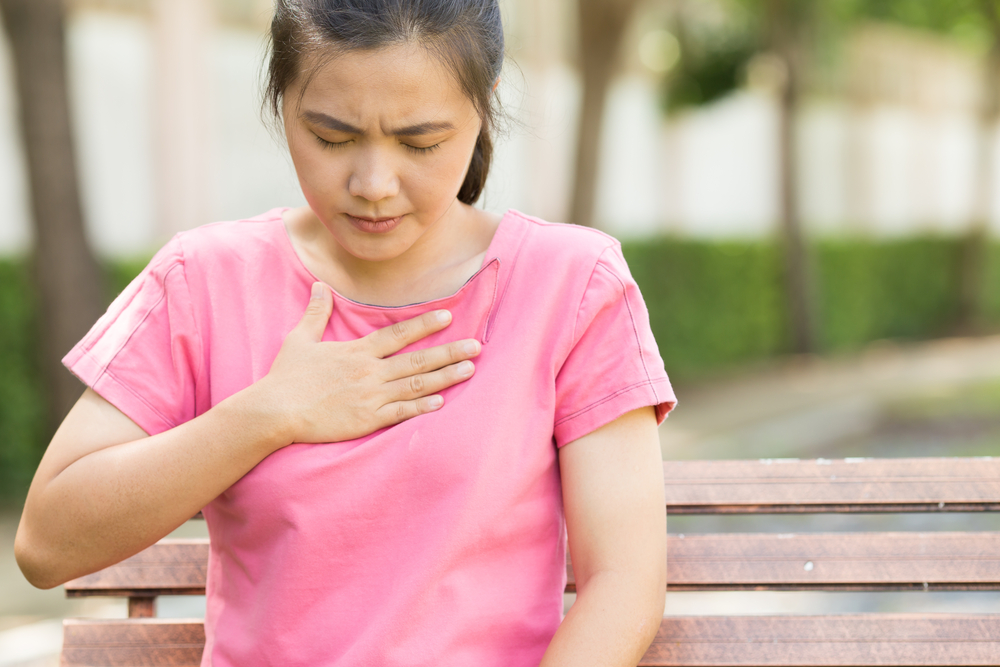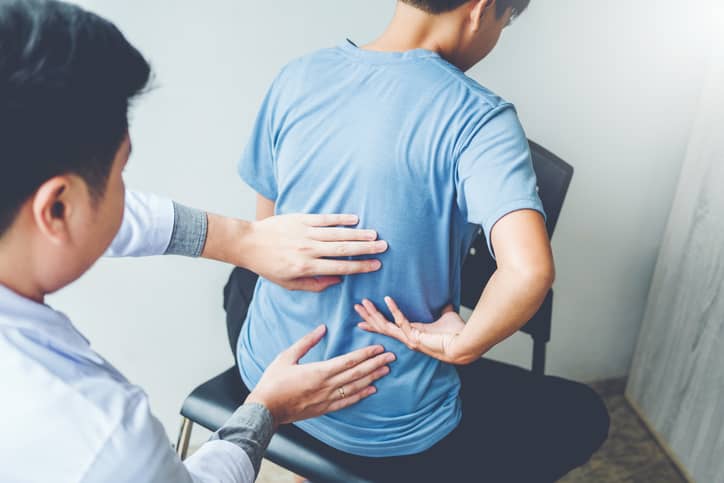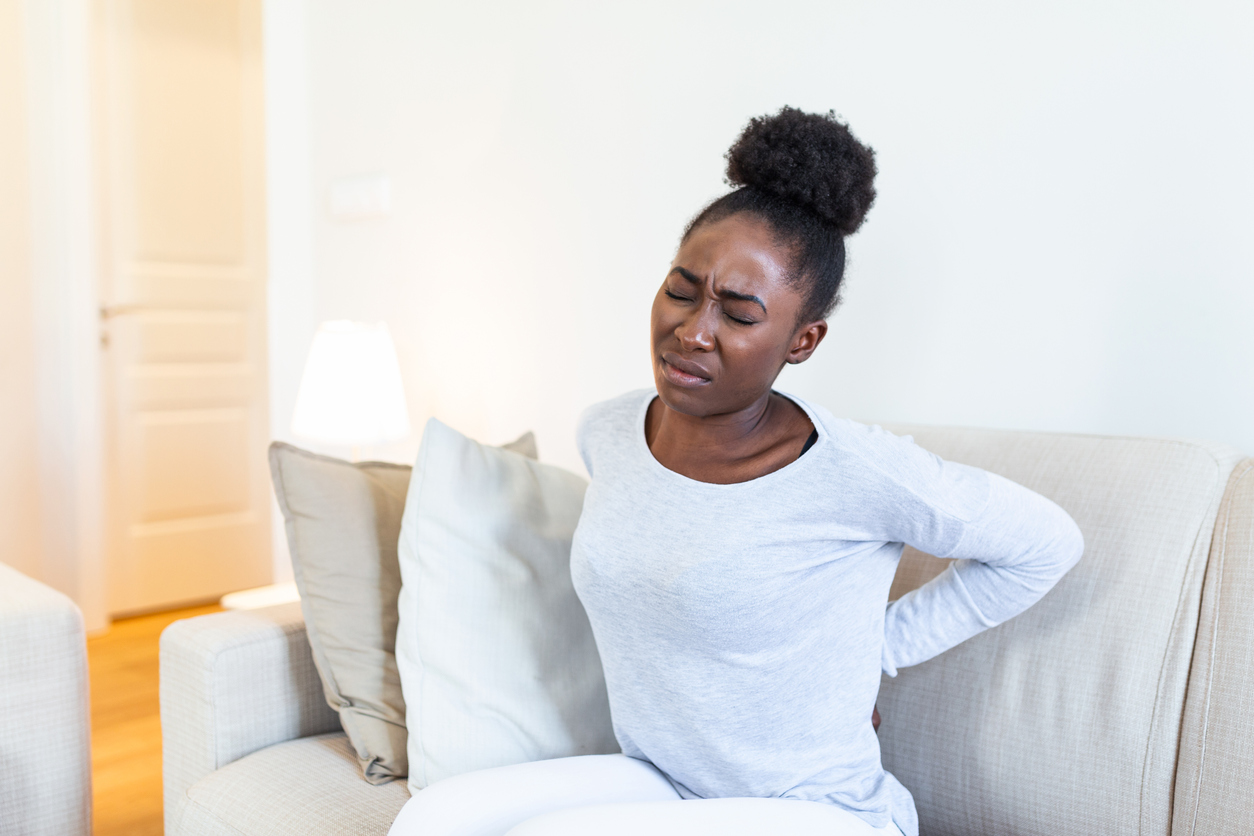If you’re experiencing chest and back pain at the same time there are many reasons this could be happening. The cause could be related to your heart, digestive tract or another part of your body.
While some causes of chest and back pain are more common and may be nothing to worry about, some are medical emergencies and need urgent medical attention.
If you have sudden or unexplained chest pain that lasts for longer than a few minutes,you should seek medical attention immediately. This could be a sign that you’re having a heart attack.
Other signs of a heart attack include sudden chest pain that:
- feels tight or weighs down on your chest
- you start feeling in your back, arms, neck or jaw
- is accompanied by shortness of breath, sweating or sickness
- carries on for 15 minutes or more
If you have any of these symptoms you should go to a hospital immediately.
Read on to find out more about the common causes of chest and back pain, when to seek help and what you can do to ease symptoms.
Heart attack
A heart attack happens when the supply of blood to your heart is suddenly blocked, often due to a blood clot. This can cause severe damage to your heart muscle and may also be life threatening.
Heart attacks are increasingly common, with more than 800,000 people having a heart attack in countries like the US each year.
In addition to the symptoms above, other signs of a heart attack can include:
- feeling weak or lightheaded, or both
- an overwhelming feeling of anxiety, like a panic attack
If you think you may be having a heart attack, you should seek medical attention immediately.

Angina
Angina is not usually life-threatening like a heart attack but is also caused by reduced blood flow to the heart muscles. It's usually considered a warning sign that you could be at increased risk of a heart attack or stroke.
Chest and back pain caused by angina can feel tight, dull or heavy and usually stops within a few minutes of resting. It’s often triggered by stress or physical exertion.
If you think you may have angina, you should see a doctor as soon as possible. They will be able to check for any heart problems and refer you for any additional care.
Pulmonary embolism
A pulmonary embolism occurs when the blood vessel that carries blood from the heart to the lungs, the pulmonary artery, becomes blocked. It’s usually caused by a blood clot and can be life threatening as it stops blood reaching your lungs.
Symptoms of a pulmonary embolism can include:
- chest or upper back pain – a sharp, stabbing pain that may be worse when breathing in
- shortness of breath – which can come on suddenly or develop gradually
- coughing – this may include coughing up blood or mucus that contains blood
- feeling lightheaded or dizzy
- fainting
If you have any of these symptoms, you should see a doctor immediately.
Heartburn
Heartburn is caused by stomach acid moving up towards your throat, causing a burning sensation in your chest. This pain is sometimes also felt in your back or abdomen.
Many people get heartburn and it’s not always clear why they get it, but common causes include being overweight, smoking, pregnancy, certain food and drinks and stress.
Heartburn often feels worse after a meal or when lying down, but there are things you can do to improve the symptoms, such as:
- eating smaller or more frequent meals
- eating at least 3 hours before bed
- avoiding food or drink that triggers your symptoms
- raising 1 end of your bed by 10 to 20cm so your chest and head are above your waist,
- losing weight if you're overweight
- finding ways to relax
- not smoking
- not drinking too much alcohol

Pleurisy
Pleurisy is when the tissue between your lungs and ribcage becomes inflamed.
The most common symptom is a sharp pain in your chest, but this can also spread to your back and shoulders. Other symptoms include a shortness of breath and dry cough.
Pleurisy is usually caused by a virus, such as the flu, but bacterial infections like pneumonia and tuberculosis can sometimes also be to blame.
Less common causes of pleurisy also include injury to the ribs, blood clots in your lungs, lung cancer, or autoimmune conditions, such as rheumatoid arthritis.
If you think you have pleurisy you should see a doctor. They will be able to listen to your chest and request further tests if needed.
Injury or muscle strain
Chest and back pain can sometimes be caused by injury or strain to the muscles in this part of your body, for example due to an accident or fall.
It can also be caused by overuse of the muscles, aided by repetitive motions throughout the day at work or when playing sports.
If you have an injury or strain, the pain is usually worse when you move this part of your body.
If you think you have a strain or injury you should rest to enable it to recover. Painkillers can also help to relieve the pain while your muscles recover, but you should speak to a doctor or pharmacist or doctor about how to get and use these.
- the pain persists even after treating it yourself
- the pain or swelling is getting worse
- you have a high temperature or feel hot and shivery, as you may have an infection

Gallstones
Your gallbladder is a small organ that stores digestive fluid called bile. Sometimes, small stones can develop here, known as gallstones, which are usually made of cholesterol.
Gallstones don’t usually cause symptoms, but if they become trapped in opening in your gallbladder, called the gallbladder duct, this can cause sudden pain. The pain is usually in your tummy or abdomen, but can spread to your back and shoulders.
Pericarditis
Your pericardium is a sac filled with fluid that surrounds your heart that helps to protect it. When the pericardium becomes inflamed, this causes pericarditis.
Pericarditis usually causes sharp chest pain and a high temperature. But the pain can spread to your back, left shoulder or neck.
It’s usually hard to find out the cause of pericarditis, but it’s often caused by a viral infection It can also have other causes, such as heart attack or heart surgery.
If you think you may have pericarditis, you should see a doctor as soon as possible.
Key points
- chest and back pain are common and aren’t always caused by something serious
- if you have both chest and back pain that spreads to your arm, back, neck or jaw, shortness of breath, sweating, or feeling or being sick, seek medical attention urgently – these could be symptoms of a heart attack
- common causes of chest and back pain include angina, heartburn, pericarditis, sprains and strains and pleurisy






